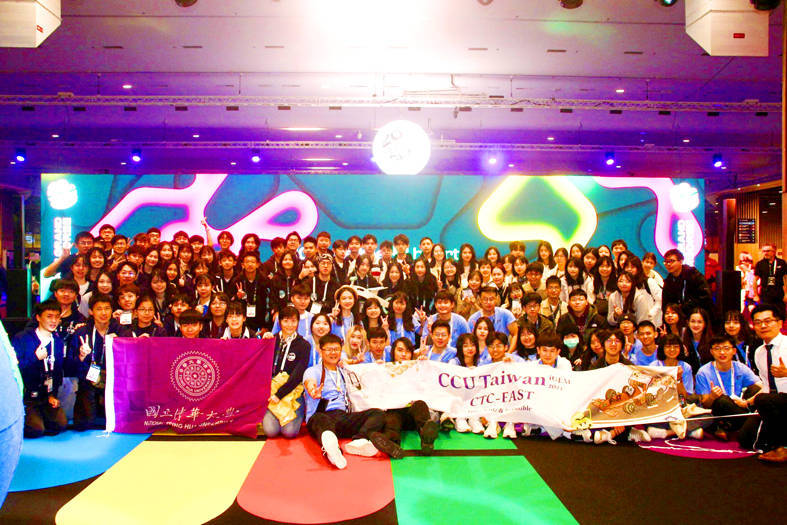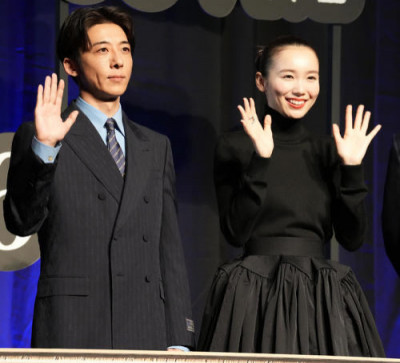《TAIPEI TIMES》 Experts urge more support for synthetic biology sector after teams win in Paris

Taiwanese teams participating in this year’s International Genetically Engineered Machine competition in Paris pose for a group photograph in an undated photograph. Photo courtesy of GEMS-Taiwan via CNA
/ Staff writer, with CNA
Industry experts have called for more support for Taiwan’s synthetic biology sector after Taiwanese teams won six gold medals at the International Genetically Engineered Machine (iGEM) competition in Paris last week.
Teams from Taiwan won six gold medals, four silver medals and several other prizes at the competition, which focuses on synthetic biology development and was held from Thursday to Sunday last week.
Taipei-KCISLK-V1, comprised of students from Kang Chiao International School’s Linkou Campus, won a gold medal for their project “Worm Out Clots,” which addressed cardiovascular disease, one of the top three causes of death in Taiwan last year.
The team used synthetic biology to create a probiotic platform for the automatic in vivo production of the enzyme lumbrokinase, which can dissolve blood clots.
The platform would prevent the mass killing of earthworms to produce the protein and enable it to be delivered as prescribed, the team said.
National Tsing Hua University won gold for “NanoCircDx,” a diagnostic technology platform for cancer screening using liquid biopsies.
The platform seeks to determine the potential presence of colorectal cancer through circular RNA analysis in blood samples, the team said.
Laurent Hsia (夏啟鐸), who has served as an iGEM judge, said that synthetic biology could solve several issues in medicine, as demonstrated by the award-winning projects.
Yet despite those successes, more resources are needed to boost students’ knowledge and passion for the subject, Hsia said.
Chiang Ju-yi (江如意), an adviser for Taipei-KCISLK-V1, said that a lack of resources for synthetic biology is reflected in it being only mentioned in one chapter of biology textbooks for high-school students.
Huang Chieh-chen (黃介辰), a professor in National Chung Hsing University’s Department of Life Sciences, said that synthetic biology is not well known in Taiwan, and that he hoped universities could recruit more instructors and launch new courses to help develop the field.
Injecting more resources into the sector would help specialists promote their work, experts in the field said.
Yu Chun-ying (余俊穎), an assistant professor of biomedical sciences at National Chung Cheng University (NCCU), who has long mentored the university’s iGEM teams, said that more resources would help competition winners promote their work abroad.
For example, they would be better able to seek international collaborations with the help of overseas Taiwanese chambers of commerce, which would nurture talent in the industry and bolster Taiwan’s capabilities to meet international standards, Yu said.
At this year’s iGEM, an NCCU team won a gold medal with their project “CTC-FAST: How we fight against lung cancer.”
The team created a device to detect circulating tumor cells, to make the process more accessible and affordable, improve postoperative follow-up care and reduce deaths, the team said.
Meanwhile, Wu Ming-tsung (吳明璁), a cofounder of biotechnology company Genenet Technology and secretary-general of the UK Taiwanese Chamber of Commerce, agreed that additional resources could go a long way in the field.
“Taiwan is rich in talent and has a first-class R&D [research and development] environment, and well-developed semiconductor and medical device industrial chains,” he said.
“If a more efficient platform can be established between our representative offices and chambers of commerce, we can plan suitable, timely policy responses to international trends, and help bridge the gap between those trends and domestic talent and industries, minimizing brain drain,” he said.
新聞來源:TAIPEI TIMES













